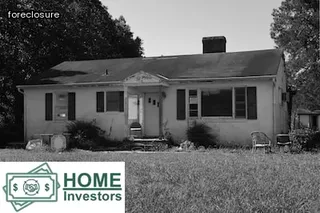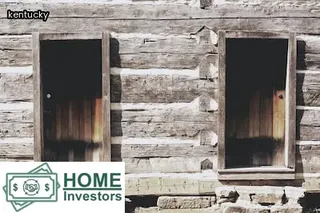Navigating the Kentucky foreclosure process can be a daunting prospect, but with a comprehensive understanding of the laws and support from professionals, you can make informed decisions. It is important to familiarize yourself with the different stages of foreclosure in Kentucky, such as pre-foreclosure, sale date/auction, and post-sale.
Pre-foreclosure is when the lender has sent a notice of delinquency and is initiating action to repossess the property. During this time, homeowners may have the opportunity to negotiate with their lender or apply for loan modification assistance.
At the sale date/auction stage, lenders will conduct an auction on the courthouse steps to sell the property to the highest bidder. Lastly, post-sale happens after a successful bid at auction and involves paperwork that must be signed by both parties.
In addition, it is important to research current market values for comparable houses in your area in order to make an informed decision about any potential purchase or negotiation. With all this in mind, you can make sound decisions about housing and real estate during each step of navigating Kentucky’s foreclosure process.

When it comes to navigating the Kentucky foreclosure process, understanding the procedures of foreclosures in the state is essential. From understanding timelines to filing the necessary paperwork, it's important to have a comprehensive guide about houses, housing and real estate in Kentucky.
Knowing when a lender can initiate a foreclosure and how long it will take for the process to be completed can help you plan ahead if you run into financial difficulty. Additionally, being aware of your rights as a homeowner will protect you from any potential abuse of power by lenders.
It's also critical that you know what documents need to be filed and when during the foreclosure proceedings. Not only will this ensure that all legal requirements are met, but it also helps minimize stress during an already difficult time.
With knowledge of these different aspects of foreclosure procedures, you can rest assured that your rights are protected throughout the entire process.
In Kentucky it is important to understand the rights of homeowners during foreclosure proceedings. Homeowners have the right to receive written notice at least thirty days before foreclosure begins, as well as the right to redeem their home up until the date of sale.
It is also essential for homeowners to know that once a sheriff’s sale has taken place, they have no further legal right to redeem their home or property. During a foreclosure procedure, lenders must follow all state laws and regulations regarding mortgage collection and notification.
Additionally, Kentucky law provides borrowers with certain protections in cases of borrower-deficiency judgments. These include limits on how much a lender can claim from a homeowner beyond what is owed on the loan, as well as prohibitions on lenders seeking repayment from other sources such as wages or tax refunds.
Understanding these rights is an important part of navigating the Kentucky foreclosure process.

When facing a foreclosure, it is important to know that there are options available to help you avoid the process and keep your home. Mortgage repayment plans may be one of these solutions.
These plans let you pay back any past due amounts in installments over time, as long as it is done within a certain timeline set by the lender. It is important to note that this is an agreement between the lender and borrower, so if you are unable to make payments on time or if you miss payments altogether, the lender can still proceed with foreclosure proceedings.
Therefore, it is essential for borrowers to stay on top of their payments and communicate with their lenders regularly in order to ensure they are able to work out a repayment plan that fits both parties' needs. Additionally, speaking with a housing counselor or real estate attorney can provide more insight into other options available when it comes to stopping a foreclosure through mortgage repayment plans.
When navigating the Kentucky foreclosure process, understanding mortgage loans is key. The state of Kentucky offers a variety of different types of mortgages and loan products for prospective home buyers.
It is important to research each type to find out which one best fits your financial situation. Conventional loans are the most common type of mortgage available in Kentucky, and usually require a down payment of at least 20%.
VA and FHA loans are also popular in Kentucky as they offer lower interest rates and can be used to purchase homes with no money down. Additionally, USDA loans provide financing for rural areas with no down payment required.
Another important factor to consider when researching mortgage loans in Kentucky is credit score requirements; typically, potential borrowers need a minimum credit score of 600 or higher for most loan products. Lastly, it’s important to understand the various closing costs associated with a mortgage loan in Kentucky, such as title insurance fees and transfer taxes that may need to be paid prior to closing on the property.
Understanding these factors will make it easier to navigate the entire foreclosure process.

When it comes to buying a home, the consequences of missed mortgage payments in Kentucky can be severe. Property owners who fail to pay their mortgage on time face the risk of foreclosure and possible eviction from their homes.
Foreclosure proceedings in Kentucky involve a lengthy process that includes filing paperwork with the court, attending hearings, and potentially losing their home if they cannot afford to make up the balance due. This process can be difficult for anyone with limited financial knowledge or resources, so it's important for property owners to understand the consequences of missed mortgage payments before taking out a loan.
If a homeowner falls behind on payments, they should get legal assistance as soon as possible to help them navigate the foreclosure process and protect their rights. Additionally, there are numerous state and federal programs available to assist homeowners facing financial hardship, so they should explore these options as well.
When navigating the Kentucky foreclosure process, receiving a breach letter can be an intimidating experience. A breach letter is sent to homeowners as a notice that their mortgage loan has become delinquent and is in default.
It is important for homeowners to take action when they receive a breach letter. This document serves as an official notification of default and must be addressed before the lender can proceed with foreclosure proceedings.
The breach letter will inform the homeowner of what actions they need to take in order to make their payments up-to-date and avoid foreclosure. It typically includes the amount due, any late fees or other charges, and instructions on how to make payment arrangements with the lender.
Homeowners should read the breach letter carefully and contact their lender immediately if they don’t understand it or if they are unable to make payment arrangements. Understanding when you receive a breach letter and why it is important can help you better navigate the Kentucky foreclosure process.

The starting point of the Kentucky foreclosure process is a Notice of Default, which is sent to the homeowner by the lender when payments have not been made for an extended period of time. This document serves as official notification that foreclosure proceedings are about to begin and outlines the steps that must be taken in order to avoid such action.
After receiving this notice, homeowners have 90 days to resolve their financial issues and start making payments again. If they fail to do so, a Notice of Sale must be issued and foreclosure will become final within a few months.
Homeowners should act quickly after receiving the Notice of Default, as failure to do so could result in losing ownership rights over their property. It is important to note that federal regulations require lenders to offer loan modifications before they can legally initiate foreclosure proceedings, so homeowners should always explore this option first.
Navigating the Kentucky foreclosure process requires an understanding of the state laws governing foreclosures. In Kentucky, the statutes governing foreclosure are laid out in Chapter 426 of the Kentucky Revised Statutes.
The statutes dictate how and when a lender can initiate a foreclosure process, including requirements for written notice prior to filing a complaint in court. The statutes also define what constitutes adequate consideration for a mortgage loan, allowing lenders to enforce the security interest associated with the loan if payments are not made on time.
Foreclosure is allowed by both judicial and nonjudicial processes. The former requires that the lender first file a lawsuit and obtain judgment from the court before proceeding with foreclosure; whereas, through nonjudicial foreclosure, no court action is needed as long as all rights specified by law are observed.
Lenders must adhere to other requirements set forth in state law such as providing certain documents to borrowers before initiating foreclosure proceedings and setting timelines for completing tasks associated with foreclosure activities.

Navigating the Kentucky foreclosure process can be a complex and stressful undertaking. However, it is possible to reinstate your mortgage before a foreclosure sale in KY.
To do this, you must contact your lender and make arrangements to pay the delinquent balance of your loan, which includes all past due payments and any fees or interest associated with them. You may also be able to negotiate a forbearance agreement with your lender, which could extend the term of your loan or reduce the overall amount you owe.
Additionally, if you are having difficulty making payments due to a temporary financial hardship, some lenders allow borrowers to apply for loss mitigation programs that provide assistance. It is important to note that while reinstating your mortgage can help prevent foreclosure, it does not forgive the debt or eliminate any negative information from appearing on your credit report.
Therefore, if you are considering reinstating your mortgage before a foreclosure sale in KY, it is essential that you understand all of the details involved and seek advice from an experienced attorney or housing counselor.
Navigating the Kentucky foreclosure process can be daunting, but understanding the redemption period after a foreclosure sale is an essential part of the process. In Kentucky, homeowners have one year following their foreclosure sale to redeem their property.
During this time, they must repay the amount they owe on their mortgage. To do so, they must first determine how much is owed by contacting their lender and then pay that amount in full.
If they are unable to repay the entire amount within this timeframe, they may be able to negotiate with the lender for an extension or other payment arrangement. In addition to repaying the balance on the loan, homeowners may also be responsible for certain fees associated with a foreclosure sale such as attorney fees, court costs and any taxes due on the property.
Homeowners should understand all of these costs before attempting to redeem their property during the redemption period after a KY foreclosure sale. Knowing what to expect from this process can help make it less intimidating and more successful for those looking to regain ownership of their home.

When a homeowner in Kentucky is faced with foreclosure, it is important to understand the timeline of when they must vacate the property. Generally speaking, once the foreclosure process is finalized and the home has been sold at auction, the former homeowner must leave the premises within 10 days, though this timeline can vary depending on local laws and procedures.
It is important for homeowners to familiarize themselves with their county's specific regulations to ensure that they are compliant. In some cases, counties may require occupants to vacate immediately after receiving notice of foreclosure or before an auction takes place.
Additionally, even if a borrower successfully delays or prevents a foreclosure from occurring through an agreement with their lender, they may still be required to vacate within a certain timeframe as outlined in their contract. Ultimately, understanding the details of a particular county's regulations can provide much-needed clarity on when homeowners must leave property after a KY foreclosure.
Navigating the Kentucky foreclosure process can be an overwhelming and daunting task, but with the help of a professional Kentucky foreclosure lawyer, you can be sure to have the best chance of a successful outcome. A lawyer will have expertise in the laws and regulations governing foreclosures in Kentucky, as well as knowledge that can help you make informed decisions during your foreclosure process.
They can assist with legal advice regarding things such as filing for bankruptcy or entering into a repayment plan, as well as other options available to help you protect your rights when facing foreclosure proceedings. Additionally, they can provide representation during court hearings and ensure that all paperwork is filled out correctly.
Ultimately, having a professional foreclosure lawyer on your side will not only ensure that you understand your rights but also give you peace of mind knowing that everything is being handled properly.

Foreclosures in Kentucky occur when a homeowner is unable to pay their mortgage and the lender takes back the property to recover what is owed. This process can take anywhere from a few months to several years, depending on the individual situation and the type of foreclosure.
In most cases, the home will be sold at an auction so that the lender can recover any remaining balance on the loan. While this process can seem intimidating, there are resources available for homeowners to understand their rights and understand how to navigate a potential foreclosure.
Knowing what steps to take before entering a foreclosure can make it easier for homeowners to protect their property and maintain their rights throughout the process.
The length of a Kentucky foreclosure process depends on many variables, including the lender, state laws, and the borrower's willingness to cooperate. Foreclosures in Kentucky are either judicial or non-judicial, with judicial foreclosures taking longer due to the involvement of the court system.
In a judicial foreclosure, the lender must file a lawsuit against the borrower in order to gain possession of the property; this can add weeks or even months onto the timeline. The lender is also required to send notices and conduct public auctions within set time periods mandated by state law, which further increases the timeline for completion.
Non-judicial foreclosures involve less paperwork and fewer steps, so they tend to be completed more quickly than their judicial counterparts; however, they are not available in all areas and require that certain conditions be met before being initiated. Ultimately, understanding how each type of foreclosure works and familiarizing yourself with relevant state laws can help ensure you navigate the Kentucky foreclosure process efficiently.

When assessing potential outcomes for defaulted mortgages in Kentucky, it is important to understand the foreclosure process and how it works. In order to navigate this complex process, homeowners should familiarize themselves with all aspects of foreclosure law in KY, including what happens after a mortgage has gone into default, the different types of foreclosure proceedings available to lenders, and the timeline associated with each option.
Homeowners must also be aware of their legal rights and responsibilities throughout the foreclosure process to ensure they are not taken advantage of by lenders or parties involved. Additionally, they should be prepared to explore all options available, including loan modification and other forms of debt relief that may help them avoid losing their home altogether.
Understanding how to successfully navigate the Kentucky foreclosure process is key for homeowners hoping for a positive outcome in their battle against debt.
When navigating the Kentucky foreclosure process, it is important to understand the strategies available for negotiating with lenders during preforeclosure. The most common approach is to reach out to the lender directly and request a loan modification or repayment plan.
This can be done through a formal loan modification application, or by simply speaking with a customer service representative. It is also possible in some cases to negotiate a short sale, which involves selling the home for less than what is owed on the mortgage.
Additionally, if other resources are available, such as refinancing or home equity loans, lenders may be willing to negotiate these options as well. It is important to keep in mind that in some cases lenders will not budge from their original position and this should factor into any negotiations.
Furthermore, it is always beneficial to have an experienced attorney review any agreements before signing them. Taking all these strategies into consideration can help make the process of navigating Kentucky foreclosures smoother and more successful overall.

When navigating the Kentucky foreclosure process, it is important to understand the differences between federal and state laws regarding protection from unfair practices during preforeclosures. On the federal level, The Real Estate Settlement Procedures Act (RESPA) seeks to protect borrowers from deceptive practices by ensuring that lenders disclose their servicing and fee information throughout the loan process.
Kentucky also has its own set of foreclosure laws, which includes a right of redemption period in which homeowners may redeem their properties after they are sold at auction. Furthermore, all foreclosures in Kentucky must be approved by a court and must go through a public sale before the lender can take possession of the property.
Additionally, there are restrictions on how much lenders can charge for late payments or for paying off loans early. It is important to understand both federal and state protections available when navigating through the Kentucky foreclosure process in order to ensure fairness and proper procedures are followed.
In Kentucky, the foreclosure process is a court-supervised procedure that allows lenders to take possession of a mortgaged property if the borrower fails to make their mortgage payments. It begins with a Notice of Default being issued by the lender and served to the borrower.
This notice gives them 30 days to either cure the default or enter into talks with the lender to resolve it. If neither of these actions are taken, then the lender can file a Complaint for Foreclosure in Circuit Court, which begins the legal process of foreclosure.
The borrower will then be served with this complaint and have 20 days to respond with an Answer. If no response is filed, then a hearing will be set for the foreclosure sale date.
On this date, all interested parties may bid on the property at public auction and the highest bidder takes ownership of it. Afterward, any remaining funds from the sale will go toward paying off any outstanding mortgage debt owed by the borrower.

Stopping a foreclosure in Kentucky requires a strong understanding of the process and the law. The first step is to contact the lender, as they may be willing to negotiate a repayment plan or loan modification that can help you avoid foreclosure.
Additionally, you may qualify for different state and federal assistance programs, such as forbearance or loan modifications, that can provide temporary relief from your mortgage payments. If you are facing imminent foreclosure, speaking with an experienced real estate attorney can also help protect your rights and interests.
In some cases, filing for bankruptcy may be able to stop a foreclosure and give you time to reorganize your finances. It is important to take action quickly and understand all your options so that you can make informed decisions about how best to protect yourself from the potential long-term effects of a foreclosure in Kentucky.
Foreclosure is a process that can be initiated when homeowners are unable to make their mortgage payments for several months. In the state of Kentucky, this period can vary depending on the type of loan and other factors, but in general, a homeowner will go into foreclosure after being delinquent for three or more consecutive months.
Knowing this timeline is essential for anyone considering buying a home in Kentucky, as it’s important to ensure all financial obligations are met. It’s also worth noting that depending on the lender, there may be options available to help homeowners avoid foreclosure; these include seeking loan modifications or refinancing.
Ultimately, it’s important to understand how many months behind you should expect before entering the foreclosure process in Kentucky.
Upon purchasing a foreclosed property in Kentucky, the purchaser can take possession of the property once the foreclosure process has been completed. The foreclosure process typically takes several months, depending on if there are any additional legal proceedings that need to be addressed.
Once all steps have been taken and all paperwork has been finalized, the purchaser is able to take possession of the Kentucky foreclosed home. Additionally, after the sale has gone through, a deed will be issued by the court and then recorded with local officials in order to officially transfer ownership of the property from the previous owner to its new purchaser.
After this final step is completed, the purchaser will be able to possess and use their newly acquired Kentucky foreclosed home.